


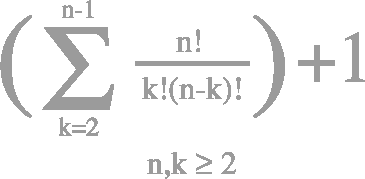


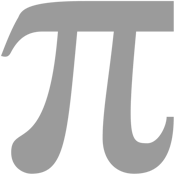

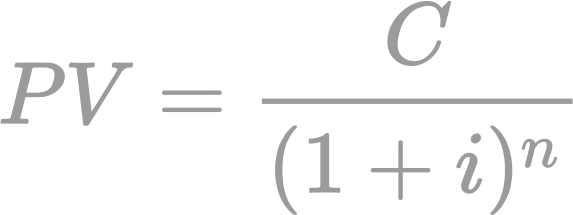
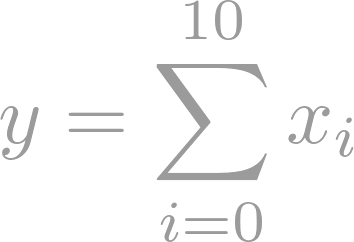
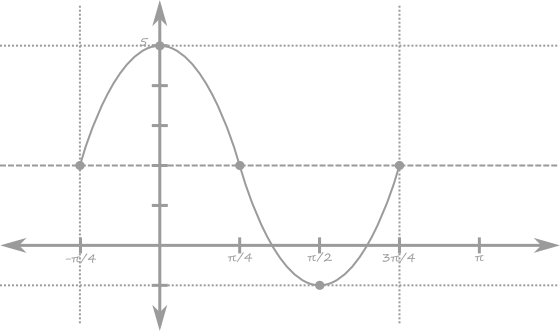
|
6 Credits |
Semester: II |
Level: I |
Prerequisites: GCE A-Level Mathematics or MATH0100/M08B and MATH0110/M08C or equivalent. |
Syllabus: One and two variable calculus; convergences of series; solutions of ordinary differential equations; elementary vector analysis in R^3, coordinate systems in R^2 and R^3. |
Examination: One 3-hour paper 85%
One in-course test 15% |
|
4 |
Semester: I |
Level: 0 |
Prerequisites: MATH2140/M25A |
Syllabus: Sampling distributions including X^2, t, and F; order statistics; estimation of parameters, likelihood, sufficiency, significance test, simple linear regression and correlation; analysis of variance; non-parametric procedures, elementary principles of experimental design. |
Examination: One 2-hour written paper 80%
One in-course test 20% |
|
6 P-Credits |
Semester: II |
Level: 0 |
Prerequisites: |
Syllabus: Function theory: limits, continuity, implicitely defined functions, review of Differentiation: Definition of the derivative, examples; the derivative of a Applications of the derivative: Local maxima and minima, the second- The definite integral: Definition of the integral, examples; The |
Examination: One 3-hour paper 70%
Two Midterm Exams 30% |
|
6 Credits |
Semester: I |
Level: I |
Prerequisites: CAPE or GCE A-Level Mathematics, or MATH0100/MO8B and MATH0110/M08C, or equivalent. |
Syllabus: Logic: Elementary set theory; basic concepts in logic, logical arguments Algebra: Binary operations; relations; functions; injective, bijective, and Real numbers: The natural numbers; induction; the axioms of the real Vector, MAtrices and Linear Algebra: Vectors in 2 and 3 dimensions; vector |
Examination: One 3-hour paper 60%
Two Midterm Exams 40% |
|
6 Credits |
Semester: II |
Level: I |
Prerequisites: CAPE or GCE A-Level Mathematics, or MATH0100/M08B and MATH0110/M08C, or equivalent. |
Syllabus: Sequences and series: criteria for convergence; techniques of integration, the Fundamental Theorem of Calculus; properties of differentiable functions; Taylor series; ordinary differential equations; an introduction to partial derivatives; parametric representation of curves. |
Examination: One 3-hour paper 60%
Two Midterm Exams 40%
oth MATH1140/M10A and MATH1150/M10B must be successfully completed before the student can proceed to Part II Mathematics courses. |
|
3 Credits |
Semester: |
Level: I |
Prerequisites: CAPE Mathematics or equivalent. |
Syllabus: Calculus and algebra; Functions of one variable: limits, continuity, differentiation and integration; common functions and inverse functions; mean value theorem; Taylor and Mclaurin expansions.Functions of two variables: limits, continuity and differentiation. Vectors: dot, cross and mixed products; geometrical problems: line, planes. Matrices: definitions, properties, solution of linear equations. Complex numbers: polar representation. Ordinary differential equations: first order equations, separation of variables, equations with homogeneous coefficients, integrating factors; second order linear differential equations and their general solution, second order equations qith constant coefficients, undetermined coefficients, variation of parameters. The Laplace transform: transforms of elementary functions, step functions, derivatives of transforms, the inverse transform, shift theorems. |
Examination: One 2-hour paper 75%
Two in-course tests 25% |
|
4 Credits |
Semester: II |
Level: II |
Prerequisites: MATH1140/M10A, MATH1150/M10B |
Syllabus: Elements of set theory: elements of proof theory, relations and functions; Groups, including fine permutation groups; Rings and the Euclidean algorithm; homomorphisms; fields. |
Examination: One 2-hour written paper 80%
One in-course test 20% |
|
4 Credits |
Semester: I |
Level: II |
Prerequisites: MATH1140/M10A, MATH1150/M10B |
Syllabus: Matrices: rank and nullity; vector spaces and bases; linear transformations; determinants; inner product spaces; eigenvalues and eigenvectors. |
Examination: One 2-hour written paper 80%
One in-course test 20% |
|
4 Credits |
Semester: I |
Level: I |
Prerequisites: MATH1140/M10A, MATH1150/M10B |
Syllabus: Sequences: Convergence, limit theorems, monotone sequences, Cauchy sequences. Continuity: limits and limit laws; continuity; the intermediate value theorem; uniform continuity. Differentiability: The derivative and its properties; Rolle's theorem, the Mean-Value theorem. Integration: Introduction to the theory of Riemann integral; Riemann sums; the Fundamental Theorem of Calculus; improper integrals; functions defined by integrals. Series: Comparison, ratio, root, etc., tests; absolute convergence; alternating series; Cauchy criterion for convergence. Series of functions: Uniform convergence of sequences and series of functions; convergence of power series; Abel's and Weierstrass's tests; functions defined by power series; Taylor series. |
Examination: One 2-hour written paper 60%
Two Midterm Exams 20%
Five Written Assignments 20% |
|
4 Credits |
Semester: I |
Level: II |
Prerequisites: MATH1140/M10A, MATH1150/M10B |
Syllabus: Basic probability theory: laws of probability, conditional probability, independence, Bayes formula, random variables, discrete and continuous distributions, expectations, moments, moment generating functions, functions of random variables. Special distributions: binomial, geometric, negative binomial, Poisson, hypergeometric, uniform, exponential, gamma, normal, laws of large numbers, the Central Limit Theorem. |
Examination: One 2-hour written paper 80%
One in-course test 20% |
|
4 Credits |
Semester: II |
Level: II |
Prerequisites: MATH1140/M10A, MATH1150/M10B |
Syllabus: Ordinary linear differential equations: existence and uniqueness theorems (no proofs), Wronskians; solution in series for first and second order non-singular and regular singular equations; methods of Frobenius. |
Examination: One 2-hour written paper 80%
One in-course test 20% |
|
4 Credits |
Semester: I |
Level: II |
Prerequisites: MATH1140/M10A, MATH1150/M10B This course is available only to final year students and to students in the Actuarial Science Option |
Syllabus: Introduction to actuarial science; measurement of interest; solutions of problems in interest, basic annuities; more general annuities, yield rates, amortization schedules and sinking funds, bonds and other securities, practical applications. |
Examination: One 2-hour written paper 80%
Course work (or in-course test) 20% |
|
4 Credits |
Semester: |
Level: II |
Prerequisites: MATH1140/M10A, MATH1150/M10B This is a core course for the double major in Mathematics and Modeling. |
Syllabus: Differential equations and classifications - first order differential equations; the existence and uniqueness theorem; second and higher order linear differential equations; power series solutions; Legendre |
Examination: Examination: One 2-hour written paper 60%
Two course work exams 20%
Five take home exams 20% |
|
4 Credits |
Semester: I |
Level: II |
Prerequisites: MATH1140/M10A, MATH1150/M10B, MATH2300 |
Syllabus: Fourier series; Vector calculus; Laplace transforms; Fourier transforms; Special functions. |
Examination: Examination: One 2-hour written paper 60%
Two course work exams 20%
Five take home exams 20% |
|
4 Credits |
Semester: II |
Level: II |
Prerequisites: MATH2125/M21Q, MATH2140/M25A and MATH2210/M27A |
Syllabus: Survival distributions and life tables, utility theory, life insurance, life annuities, commutation functions, net premiums and premium reserves, introduction to multiple life functions. |
Examination: Examination: One 2-hour written paper 80%
Course work (or in-course test) 20% |
|
4 Credits |
Semester: II |
Level: III |
Prerequisites: MATH2125/M21Q |
Syllabus: Types of error, finite differences and interpolation, numerical solution of differential equations; roots of equations; linear systems and matrices; construction of algorithms for computation. |
Examination: Examination: One 2-hour written paper 80%
One in-course test 20% |
|
4 Credits |
Semester: I |
Level: III |
Prerequisites: MATH2110/M20B |
Syllabus: Linear programming and duality; mathematical modelling, mathematical structure of the primalprogramme; the simplex tableau and simplex techniques, dual linear programmes; complimentary slackness, the duality theorem; networks; computations involving computers and software; sensitivity analysis. |
Examination: Examination: One 2-hour written paper 70%
Two in-course tests 30% |
|
4 Credits |
Semester: II |
Level: II |
Prerequisites: MATH2120/M 21A or MATH2125/M21Q and M21B/MATH 2160 or MATH 2300 |
Syllabus: Vector analysis: gradient, divergence, curl, Orthogonal curvilinear coordinates: Cartesian, Cylindrical and spherical. Line, surface, volume integrals, Introduction to tensors, kinematics and equations of motion for inviscid fluids, simple inviscid fluids, viscous flows |
Examination: Examination: One 2-hour paper 75%
Course work 25%
|
|
4 Credits |
Semester: I |
Level: II |
Prerequisites: MATH2140/M25A, MATH2150/M25B and MATH2320/M27B |
Syllabus: Multiple life functions, multiple decrement model; insurance models including expenses; nonforfeiture, benefits and dividends; valuation theory for pension plans. |
Examination: Examination: One 2-hour written paper 80%
One in-course test 20% |
|
4 Credits |
Semester: II |
Level: III |
Prerequisites: MATH2125/M21Q, MATH2160/M21B, MATH2140/M25A, MATH2150/M25B |
Syllabus: Review of earlier statistical work; individual risk theory; other frequency distributors; mixed distributions; stoploss insurance; ruin theory. |
Examination: Examination: One 2-hour written paper 80%
One in-course test 20% |
|
4 Credits |
Semester: II |
Level: III |
Prerequisites: MATH2210/M27A, MGMT/MS28D, MGMT3048/MS38H Credits from this course cannot count towards the 16 non-core credits required for a major in Mathematics. |
Syllabus: Review of Macroeconomics; Characteristics of the various types of investments used to fund financial security programmes; traditional techniques of financial analysis used in selecting and managing The course builds on the material in courses MS28D and MS38H, introducing further tools and techniques of asset/liability management, general product design, as well as issues of pricing and valuation and asset management. |
Examination: One 2-hour written paper 80%
Course work (or in-course test) 20%
|
|
4 Credits |
Semester: I |
Level: III |
Prerequisites: MATH2125/M21Q, MATH2160/M21B and MATH2110/M20B |
Syllabus: First order differential equations, separable and homogeneous types; Pfaffian forms in two variables, Bernoulli and Riccati types; existence anduniqueness theorem for the initial-value problem. First order linear systems, matrix formulation of first order systems for both normal and defective matrices, funamental matrices, matrix-valued functions and computation of the exponential of a matrix. The Laplace transform, theory of the Laplace transform and its use in the solution of differential equations. |
Examination: Examination: One 2-hour written paper 80%
Course work 20% |
|
4 Credits |
Semester: I |
Level: III |
Prerequisites: MATH2110/M20B, MATH2110/M20B, MATH2150/M25B |
Syllabus: Study is continued on the applied aspects of MATH2150/M25B such as analysis of variance, regression analysis, design of experiments and categorical data analysis, time series analysis, stochastic processes and decision theory. |
Examination: Examination: One 2-hour written paper 80%
Course work (or in-course test) 20%
|
|
4 Credits |
Semester: II |
Level: III |
Prerequisites: MATH21100/M20A |
Syllabus: Finite fields, shift registers, algebraic coding theory. |
Examination: Examination: One 2-hour written paper 80%
One in-course test 20% |
|
4 Credits |
Semester: I |
Level: III |
Prerequisites: MATH2100/M20A, MATH2110/M20B |
Syllabus: Syllabus: Projections in R^n and C^n; the adjoint of a matrix; special classes of matrices (Hermitian, positive definite, normal and unitary); polynomials of matrices; the Jordan canonical form; the singular value decomposition. |
Examination: Examination: One 2-hour written paper 80%
One in-course test 20% |
|
4 Credits |
Semester: I |
Level: III |
Prerequisites: MATH2100/M20A, MATH2110/M20B and MATH2125/M21Q |
Syllabus: Prime numbers; unique Factorization in Z and k[x]; arithmetic functions, m, d, w and lattice points; congruence; Chinese remainder theorem; quadratic reciprocity law; algebraic numbers and algebraic integers; transcendental numbers; finite fields; diophantine equations; distribution of prime numbers; Chybeshev theorem; the Riemann-Zeta Function. |
Examination: Examination: One 2-hour written paper 70%
Two in-course tests 30% |
|
4 Credits |
Semester: II |
Level: III |
Prerequisites: MATH2125/M21Q and MATH2110/M20B |
Syllabus: Metric spaces, examples; continuity; completeness; topological spaces; Hausdorff spaces; connectedness. |
Examination: Examination: One 2-hour written paper 70%
One in-course test 30%
|
|
4 Credits |
Semester: I |
Level: III |
Prerequisites: MATH2125/M21Q |
Syllabus: Differentiablity, analyticity; contour integrals, Cauchy's theorem and its consequences; Taylor series, Laurent series; residue calculus. |
Examination: Examination: One 2-hour written paper 80%
One in-course test 20%
|
|
4 Credits |
Semester: |
Level: III |
Prerequisites: MATH2300, MATH2301 This is a core course for the double major in Mathematics and Modeling. |
Syllabus: Partial differential equations and classifications; well-posed problems, classical solutions, initial and boundary value problems; first order linear and quasi-linear partial differential equations; method of characteristics; conservation laws; classification of general second order operators; the wave equation, D’Alembert method of solution; Laplace’s equation, the maximum principle; the heat equation; separation of variables; boundary value problems and Sturm-Liouville theory. |
Examination: Examination: One 2-hour written paper 60%
Two course work exams 20%
Five take home exams 20% |
|
4 Credits |
Semester: |
Level: III |
Prerequisites: MATH2140/M25A This is a core course for the double major in Mathematics and Modeling. |
Syllabus: Stochastic processes: definition and classification; modeling with stochastic processes, Markov chains and applications; theoretical aspects of stochastic simulation; counting processes and applications; queues and applications; practical aspects of stochastic simulation. |
Examination: Examination: One 2-hour written paper 60%
One in-course test 20%
One group project 20% |
|
4 Credits |
Semester: |
Level: III |
Prerequisites: MATH 2125, MATH2300, Courses prescribed by the supervisor with the nature of the project. |
Syllabus: Students will carry out a research project in groups of no more than four, under the close supervision of one or more faculty members. Each student should have a distinct, well-defined role in the project. The group will report its findings in the form of a written thesis, and each student in the group will be required to make an oral presentation on their role in the work. Project topics will be decided upon by faculty members of the Department of Mathematics, if appropriate with input from students. Topics should reflect the area of expertise of the faculty member who will act as supervisor, the interests of the student, and the objectives of the student’s chosen major. Projects may require the theoretical or computational investigation of a mathematical topic, the construction of a model for a real-world phenomenon using skills developed in the course of the students’ studies. Reading projects centered on advanced mathematical topics are also acceptable. Ordinarily, the supervisor should be a member of the Department of Mathematics, however if appropriate a co-supervisor from another department may be appointed if their expertise is necessary for the successful completion of the project. |
Examination: Examination: The project assessment has two components:
Written thesis – 70% of overall grade;
Oral examination – 30% of overall grade
|